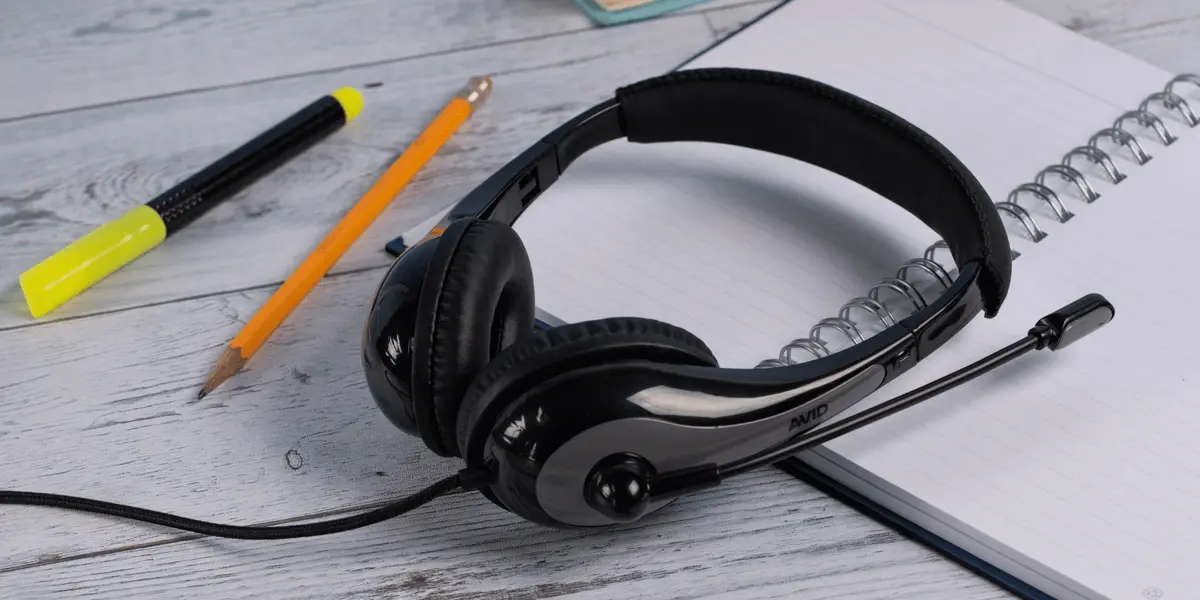Audio Transcends: Sound and Education, Part 2

Sound is a crucial component of how we experience and perceive the world around us. Whether it exists alone as music or accompanies other media, sound can carry information, augment different sensations, and even evoke strong emotional responses. We’ve long understood the way our bodies conduct sound waves – how cilia in our inner ear turn mechanical signals into neural ones – but we are constantly discovering new lessons about the various ways sound and noise have reverberating effects in our everyday lives.
In this blog series, Audio Transcends, we’ve been exploring how sound affects our experiences in education, healthcare, and in travel, and hospitality. We’ve already discussed Sound and Education, Sound and Healthcare, and Sound, Travel, Hospitality, and now in our final piece, we are revisiting Sound and Education to further delve into the key benefits of audio in learning.

Sound and education
In the present day, technology is widely prevalent in our classrooms and schools. Starting as early as elementary school, many students are provided their own electronic devices, such as personal Chromebooks, for schoolwork and homework use. With this increased adoption of laptops and tablets comes an increased opportunity for the utilization of multimedia learning tools to assist with all sorts of instruction, ranging from foreign language learning to science and mathematics.
No matter the subject being taught, sound and audio play an undeniable role in the student’s learning experience. Poor quality audio can seriously hinder the effectiveness of a course or other learning tool. In one study examining audio conferencing in distance language courses, the most frequently identified problem was sound quality, with 8 out of 19 tutors experiencing difficulty either hearing or being heard by students. In addition, the importance of sound and audio in language learning is rising, as new learning platforms (such as podcasts) grow increasingly popular.
In higher education, students are often consuming research and research presentations, which can take either a written (a paper) or an audio form. Sonic representations of research can include conference talks and radio interviews, two sources studied by an article published in Science Communication. The authors conducted two parallel experiments in which conference talks and radio interviews from NPR’s Science Friday were played to the study participants in both high and low audio quality. Perhaps to be expected, they found that even though the content in both versions of the recordings was identical, the research and researcher were evaluated less favorably when the audio quality was poor. This finding supports the idea that good audio quality is essential for an unbiased interpretation of the content being played – this should extend not only to scientific research but to all educational settings where audio is being listened to.
The importance of great-sounding audio
Our perception of sound and audio is one of the key ways we experience the world around us, a world that is becoming more and more technologically enabled and dependent. This emphasis on forward-facing tech solutions spans a multitude of industries, from healthcare to hospitality. And even beyond implementations in technology, sound and audio have been shown to have beneficial effects at a neurochemical level, in ways that we don’t fully understand yet. As more research is done on the biological benefits of sound, additional unique uses and advantages of sound and sound exposure are sure to surface.
To sum things up, sound plays countless roles in our lives, from music listening to sound therapy. One thing is for sure though: high-quality audio is a necessity in all of these implementations and the elimination of bad sounds, or noise, should be prioritized. We explicitly saw the detrimental effects of noise on early student learning and the beneficial ones in a similar learner population. But the importance of great-sounding audio is relevant across all the industries we covered, from education to healthcare to travel and hospitality. The potential and possibilities of sound and audio solutions are limitless.
Thank you for joining us on this learning journey as we explored the way audio transcends almost every aspect of our lives. To take a look back at this series, you may use the links below.
Audio Transcends: Sound and Education
Audio Transcends: Sound and Healthcare
Audio Transcends: Sound, Travel, and Hospitality
This article was written by Joey Gu and edited by Elizabeth Woodard
Tags:
Education & Learning



Comments